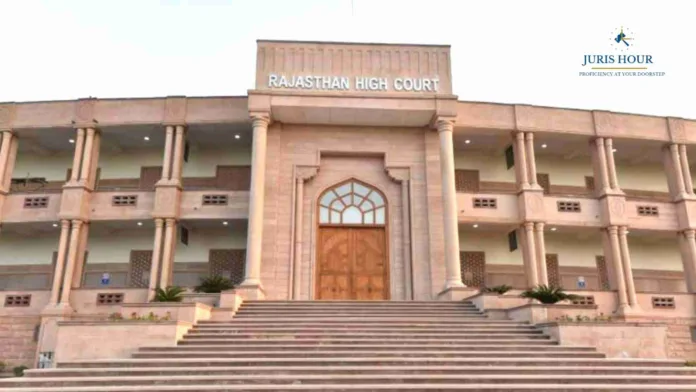The Rajasthan High Court has held that the Jurisdictional Assessing Officer (JAO) lacks jurisdiction to issue income tax reassessment notices under section 148 of the Income Tax Act.
The bench of Justice Pushpendra Singh Bhati and Justice Munnuri Laxman has observed that ruled Faceless Assessment Officer (FAO) has been assigned specific jurisdiction and the Scheme dated 29.03.2022 also clearly indicates that the FAO has to be the jurisdictional authority. The opening of multiple jurisdictional avenues will not only lead to confusion, but will also result into a failure on the part of the department, to give a concrete opportunity to the assessee.
“The concurrent jurisdiction of FAO and the JAO, if accepted, would defeat the very purpose of statutory provisions i.e. Sections 151A & 144B of the Act of 1961,” the bench said.
The petitioners/assessees filed their Income-Tax Returns. The respondents issued notices under Section 133(6) of the Income Tax Act, 1961. The notices culminated into forwarding of the matters under Section 151 of the Income Tax Act, 1961 for initiation of the proceedings under Section 148 of the Income Tax Act, 1961.
The approvals were granted by the respondents for issuance of notices under Section 148 of the Income Tax Act, 1961, and thereafter, the notices were issued under the said provision of law.
The Central Board of Direct Taxes (CBDT), framed a Scheme, namely, “e-Assessment of Income Escaping Assessment Scheme, 2022”, vide Notification No.18 of 2022/S.O. 1466(E) dated 29.03.2022.
In the notification, the procedure for assessment, reassessment & re-computation of income under Sections 147 and 148 of the Income Tax Act of 1961 has been notified.
The notices which were issued under Sections 147 & 148 of the Income Tax Act, 1961 were required to comply with the Scheme of 2022 and thus, ought to have been Faceless as enshrined in the CBDT Notification dated 29.03.2022.
The core question raised was whether the notices issued by Jurisdictional Assessing Officer (JAO) are to be declared invalid & bad in law, being in contravention of Section 151A of the Act of 1961 read with Notification dated 29.03.2022.
The petitioners contended that the Scheme of 2022 as notified was adhering to all the parameters of Section 151A(3). It was further submitted that issue of concurrent jurisdiction of JAO and the Faceless Assessing Officer (FAO) for issuance of the notices impugned is a pertinent question because allowing issuance of all the notices by the concerned JAOs and making FAOs redundant, would defeat the very purpose and legislative intent underlying Section 151A of the Act of 1961 read with CBDT Notification dated 29.03.2022.
The court noted that there is no equity in taxation law. There is no intendment and presumption as to tax. Nothing is to be read in and nothing is to be implied.
The court observed that the basic principle of charge under Tax Statutes is, ”No tax can be imposed on the subject without words in the Act clearly showing an intention to lay a burden upon him.”
The court stated that the burden of proof of bringing someone under a charge is on the revenue and that of bringing assessee under exemption/deduction is on the assessee itself. If an interpretation of a fiscal enactment is open to doubt and two views are reasonably possible then the one more beneficial or favourable to the assessee should be adopted.
The court held that the provisions related to machinery of assessment or collection should be construed to make it workable and effectuate the levy and advance the objection of provisions. Construction of machinery provisions that disables the taxing machinery, and enables the person to escape taxation shall be avoided.
“In case of provisions creating rights, courts must lean in favour of construction that saves the right instead of the one defeating it,” the court said.
The court while allowing the petition held that it is only the FAO which can issue the notice under Section 148 of the Act and not the JAO. Accepting an argument against the above position of law would render Clause 3(b) of the Scheme otiose and to be ignored or contravened; and, implicitly would thereby make the whole Scheme otiose.
Case Details
Case Title: Sharda Devi Chhajer Versus The Income Tax Officer
Case No.: D.B. Civil Writ Petition No. 11787/2024
Date: 19/03/2025
Counsel For Petitioner: Vikas Balia, Senior Advocate assisted by Mr. Sachin Saraswat & Mr. Priyansh Arora, Mr. Anjay Kothari, Mr. Sharad Kothari Mr. Prateek Gattani Mr. Pranjul Mehta Mr. J.S. Saluja, Mr. Shafi Mohd. through VC.
Counsel For Respondent: K.K. Bissa





